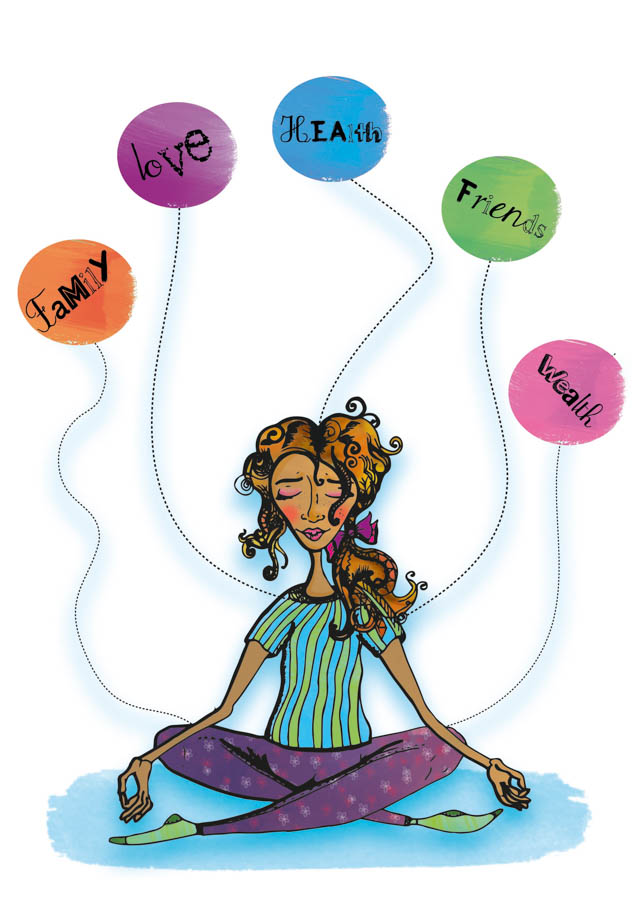Finding Your Happy Place
Switzerland is the world’s happiest country, according to the latest World Happiness Report, a document that sets out to review the state of happiness in the world today. Now that I have been living in the world’s happiest country for two years, I’ve had a chance to ponder whether I’ve been a happier version of myself during this time.
I can certainly see the wonderful things that Switzerland has to offer: the chocolate, cheese, and mountain air can hardly be beaten, but at the same time, moving to a country where I can’t speak the language has presented its own challenges. So while there have been ups, there have also been downs. The grit and determination needed to start from scratch in a new country are not always compatible with a feeling of contentment and joy.
So what is it that makes Switzerland so happy, anyway? Looking at the top of the list of happiest countries, it would be easy to conclude that wealth has something to do with it, but according to Jeffrey Sachs, director of the Earth Institute at Columbia University, the wellbeing of a society is not determined by money alone, but also by fairness, honesty, trust, and good health.
The report noted that most of the differences in happiness could be explained by six factors: gross domestic product per capita, healthy life expectancy, social support, perceived freedom to make life choices, and generosity and freedom from corruption.
It also found that a common social theme emerged consistently, which was that people are happier when they could rely on family, friends and social institutions, and that long-established social norms are important to national happiness.
In a recent article, Leonid Berhidsky speculated that the reason why Switzerland, Iceland, Denmark and Norway scored so highly could be explained in part by the participatory nature of their societies, and highlighted Switzerland with its direct democracy and tight-knit local communities. The happiest countries also have small populations in common, and it stands to reason that there is a greater awareness of individual responsibility in a smaller setting.
I have observed the collective sense of community and responsibility in Switzerland. The first clue was the many rules. The second clue was people abiding by the many rules. When I first moved here I was unsure about letting my children walk alone to school, my initial instinct being that it surely couldn’t be safe. That is most likely down to the wiring of coming from a place ranked as the 21st happiest country. But now I’m finally comfortable enough to let them loose, and I have to say, that makes me pretty happy.
At a higher level, there is a sense that the Swiss government is looking out for its people, demonstrated by the fact that they give out potassium iodide to everyone living within a 50km radius of a nuclear power station in case of emergency. When our supply appeared in the post box I did think it was a little odd, but kind of reassuring nonetheless.
I can’t help wondering whether it’s enough to live in a happy country, or whether you actually need to come from there? Is my British mentality an obstacle to achieving absolute happiness in Switzerland? After all, the British are known for their somewhat pessimistic view of their own homeland. I suspect there might be something to that; after all, I cannot have the same sense of connection to this place that a Swiss-born person has, and the community cannot have the same connection to me. Even so, the report highlighted the view that happiness and wellbeing are best regarded as skills, and there’s no place like the world’s happiest country to hone those skills.
According to the report, happiness helps us live longer, healthier, and more productive lives, and cultivating that emotion early in life is key, as it lays the foundation for greater happiness during adulthood. I have three children, and I wonder whether living in the world’s happiest country will influence their happiness, particularly as we are considering a move to a country lower down the list at some point. I’m hoping that the trick is to foster the idea of trust and community spirit and to put a positive spin on wherever we end up.
By Roz Bonomally
Roz is a mum of three and a medical writer. She is British but lived in Norway and Australia before relocating to Zurich with her family in 2013. You can read about her thoughts on life as a nomadic family on her blog, reflections from a wandering mind.
Illustration by Bvisual.
Beth (“BVisual”) graduated from university after studying visual communication, specialising in illustration. She’s has been working as a freelance creative and undertaken projects such as the V&A Illustration Awards in London. Beth has projects involving portraits and editorial illustrations under her artist’s name BVisual.





Pingback:Happiness. | Reflections from a wandering mind